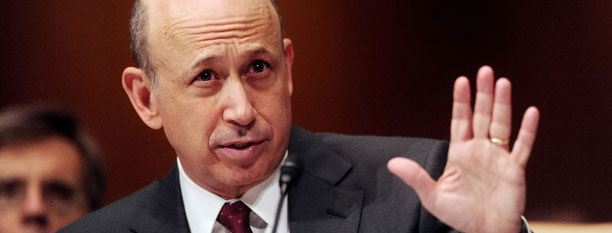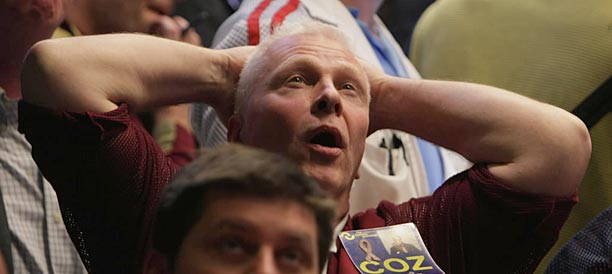A proposed settlement between Steven Rattner, the former head of the U.S. auto task force, and the Securities and Exchange Commission over a pension corruption scheme was unexpectedly pulled from Thursday’s calendar, one source with knowledge of the matter said Thursday. Get the full story »
Inside these posts: SEC
Visit our Filed page for categories. To browse by specific topic, see our Inside page. For a list of companies covered on this site, visit our Companies page.
SEC votes on plan to police swaps, derivatives
The top U.S. securities regulator Wednesday took its first stab at policing the $615 trillion over-the-counter derivatives market with a plan to mitigate conflicts of interests at venues that will handle the swaps.
The Securities and Exchange Commission voted 5-0 to propose ownership limits on the swaps trading venues and clearinghouses, which will assume the risk if one party defaults. Get the full story »
SEC delays proxy access rule during challenge
U.S. regulators Monday delayed implementation of their rule giving shareholders more power to influence corporate boards, a win for business groups trying to overturn the rule.
The U.S. Chamber of Commerce and Business Roundtable sued the Securities and Exchange Commission last week, saying its recently adopted rule was arbitrary and capricious. Get the full story »
Goldman’s Tourre: SEC suit should be dismissed
Fabrice Tourre, a central figure in a controversial Goldman Sachs transaction, asked a judge to throw out a U.S. regulator’s fraud lawsuit against him, 2-1/2 months after the bank settled its part of the case for $550 million. Get the full story »
U.S. business groups sue SEC over proxy access
The U.S. Chamber of Commerce and the Business Roundtable sued the Securities and Exchange Commission Wednesday over its rule giving shareholders an easier way to influence corporate boards. Get the full story »
Report detailing May 6 ‘market failure’ expected this week
As the Securities and Exchange Commission finalizes its report on the May 6 “flash crash,” it is being forced to confront the fallout of its own decisions — which Wall Street sought and cheered — that ushered in an era of fast trading dispersed across dozens of venues.
As recently as this spring, many were applauding the speed, lower costs and competitive nature of the U.S. stock market that largely grew out of a series of policy and technology changes over a decade. “Who could argue that competition was a bad thing . . . and that faster trades would be a bad thing?” asks Joseph Saluzzi, co-head of trading at broker Themis Trading.
But the flash crash, he says, shows there have been “huge, unintended consequences.” Get the full story »
SEC commissioner questions flash crash remedy
A commissioner at the Securities and Exchange Commission questioned on Friday the value of saddling high-frequency trading firms with tighter market-making rules, a key response to the May “flash crash.” Get the full story »
SEC watchdog: Timing of Goldman case ’suspicious’

Goldman Sachs chairman and CEO Lloyd Blankfein at the Senate hearing on the role of investment banks during the financial crisis, Apr. 27, 2010. (Olivier Douliery/Abaca Press/MCT)
The timing of the Securities and Exchange Commission’s case against Goldman Sachs Group Inc. was “suspicious,” the federal regulator’s watchdog said Wednesday.
The SEC filed civil fraud charges against Goldman in mid-April, the same day the watchdog group released a damning report that accused the SEC of mishandling its probe of Allen Stanford’s alleged Ponzi scheme.
The report, authored by SEC Inspector General David Kotz, said the SEC had suspected as early as 1997 that Stanford was running a Ponzi scheme, but did nothing to stop it until late 2005. Get the full story »
CFTC’s Gensler sees real-time swaps reports in year
The head of the U.S. futures regulator said Tuesday that mandatory real-time reporting of swaps trades, a key measure to promote market transparency, could begin as early as September 2011.
Gary Gensler, Chairman of the Commodity Futures Trading Commission, has been reluctant to provide details or a timetable for new rules to oversee the swaps markets until recently, but his latest remarks offered some early insight on the agency’s direction. Get the full story »
SEC votes to crack down on ‘window dressing’
Securities regulators voted unanimously on Friday to propose rules for companies to disclose more information about their short-term borrowings.
The agency is trying to crack down on financial companies that use accounting gimmicks to bolster their balance sheets, particularly at the end of a quarter. Get the full story »
Bribery probe widens over HP contract in Russia
A bribery investigation into a Hewlett-Packard Co. government contract in Russia has broadened to include more deals dating back to 2000.
In a statement Friday, HP said it is cooperating with authorities, “who have now expanded their investigations beyond” a transaction with the Russian prosecutor’s office. Get the full story »
Russell 1000, ETFs added to ‘flash crash’ halts
The Securities and Exchange Commission adopted new rules Friday to expand the trading halts it implemented after the May 6 “flash crash” and to harmonize stock exchanges’ procedures for breaking erroneous trades. Get the full story »
Brits hit Goldman with $27M nondisclosure fine
Britain’s financial watchdog fined Goldman Sachs Group Inc. 17.5 million pounds ($27 million) for failing to tell the regulator it was the subject of a U.S. probe, reviving disclosure headaches for the Wall Street powerhouse.
The fine — one of the biggest imposed in Britain — stemmed from Goldman’s troubled Abacus mortgage-security product, which was the focus of an investigation by the U.S. Securities and Exchange Commission. Get the full story »
SEC looks at stub quote ban after flash crash
Regulators probing the stock market “flash crash” in May still have not uncovered a single cause but will point to “stub quotes” and other previously identified issues as having exacerbated the market’s dramatic drop, according to two sources familiar with the probe.
A third source said the Securities and Exchange Commission is still asking about a “smoking gun” that might explain the May 6 crash, when the Dow Jones industrial average plunged some 700 points before sharply recovering, all in about 20 minutes. Get the full story »
SEC probes role of canceled trades in flash crash

A trader watches the numbers in the S&P 500 pit at the CBOE on May 6 during the Dow's 1,000-point freefall. Stocks recovered, finishing down about 3 percent. (Terrence Antonio James/Chicago Tribune)
Regulators are scrutinizing what some in the stock market are calling “quote stuffing,” trading in which unusually large numbers of orders to buy or sell stocks are placed in a fraction of a second, only to be canceled almost immediately.
The Securities and Exchange Commission has begun looking into whether the practice is putting some investors at a disadvantage by distorting stock prices, according to people familiar with the matter. The SEC is looking at what role, if any, quote stuffing played in the May 6 “flash crash,” when the Dow Jones Industrial Average collapsed 700 points in minutes, the people say. Get the full story »




